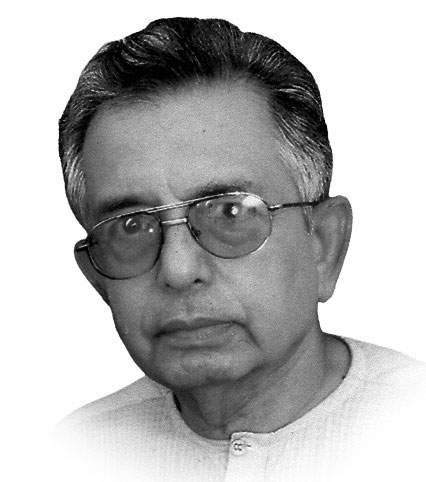A balanced package for Afghanistan
I read the article ‘Who is vulnerable: Taliban or the western powers, by Dr Farah Naz (23 November) and also the one it replied, titled ‘The Taliban Is Vulnerable.
Here’s How to Seize the Moment’ by Sarah Chayes, published in the Politico Magazine on 13 November. And of course I did a bit of search to find out what sort of person Sarah Chayes was.
I did this because when someone’s statements are open to different interpretations, getting to know the person provides a better guide to what he or she would have actually meant.
I noted that the lady is of Jewish origin and is an American. Now that could mean double trouble but not necessarily.
And this because not every Jew could be likened to Israeli terrorists and there are Jews even in Israel who detest their government’s inhuman treatment of Palestinians, just as there are Americans who oppose their government unconditional support for Israeli terrorist state and other acts of savagery around the world. So, her being Jewish and American doesn’t really matter.
As for her qualification, I learned that she earned a master’s degree in History, specializing in the Medieval Islamic period, from Harvard University.
She knows English, French, Arabic and Pashto languages. She served in the Peace Corps in Morocco. She worked as Paris reporter for National Public Radio covering France, the European Union, North Africa and the Balkans.
After covering the fall of Taliban in 2002, she decided to leave reporting and stayed behind in Afghanistan for years, trying to contribute to the rebuilding of the war-torn country.
She helped and encouraged Afghan farmers to produce flowers, fruits and herbs instead of opium poppy and formed a cooperative to buy their produce. And both during her academic and professional career, she won many distinguished prizes.
She got involved in helping Afghans, and spent around a decade there, away from the modern world providing the best of facilities and comforts, and instead chose to stay in a primitive region, devoid of even the basic facilities.
And she did it all by choice, and not due to any compulsion or for any ulterior motive. An impartial scrutiny of the above facts could only lead me to the conclusion that the lady could not be an Afghan-hater. Another thing that stands out is her great dislike for Taliban.
However, in view of her sympathetic attitude towards Afghans in general, this could only be because of Taliban’s attitude towards basic human rights, especially those of females. And this view gets amply confirmed by the concluding paragraph of her article, which says:
“Does the West want the Taliban to refrain from trucking with international terrorism or trying to expand their Islamic Emirate beyond Afghanistan’s borders? Do we think an Afghan government that represents the spectrum of people who make up the nation would be more stable than one run by a narrow — and largely detested — authoritarian faction? Do we want the half of the population that has two X chromosomes to enjoy comparable human rights to their male counterparts, such as the right to learn, teach, or practise medicine? Do we believe Afghans deserve freedom of motion and expression? “
And, of course, her concerns are not unfounded.
And having stayed so long in Afghanistan, observing and experiencing things first hand, her feelings would naturally be far more intense than those of others like us who have only heard and read about it, but have not been impacted directly by the narrow-minded and rather misguided and harsh interpretation of religion by the Taliban.
In fact, the thinking of those in Swat and elsewhere in the country who, and of the families who lost their near and dear ones – totaling over 70,000 Pakistanis – in the battle for eradicating the menace of terrorism in Pakistan, would not be much different from those of Sarah Chayes.
These are also the concerns which have prevented even Afghanistan’s friendly neighbours from according immediate and unconditional recognition to the new Afghan Taliban government.
Also, being a female, Sarah would have rather more pronounced feelings for Afghan women – as expressed above – who were worst sufferers under the old Taliban rule, and seem only marginally better off now.
It is absolutely clear that even the present Taliban have not been as forthcoming as was expected from them regarding formation of an all-inclusive government in Afghanistan and respect for human rights of all, including women.
While they have not been as harsh with women as was seen during their earlier stint, they still do not seem prepared to give full rights to women and girls in the field of employment and education, even while remaining modestly dressed.
Through a recent decree, Taliban have stopped women from appearing in television dramas and soap operas. And they have done this while they are under great economic and other pressures. Just imagine how would they behave, if relieved of all pressures?
Of course, those in Afghan government presently comprise a mixture of hardliners — who may want their polices implemented in Afghanistan and also exported abroad — as well as, moderates.
And by keeping them under pressure would definitely strengthen the hands of moderates and would benefit Afghan men and women and also protect neighbouring states from their over-ambition to take over the world.
So, the obvious solution lies in offering the right mix of carrots and sticks to the new Taliban government.
I hope that the statement on 24 November by US State Department Spokesman Ned Price, that the United States is set to resume talks with the Taliban next week in Qatar, to discuss humanitarian crisis in Afghanistan and steps to ensure that the country does not become a “launchpad” for terrorism, is a move in that direction.
— The writer is senior political analyst based in Karachi.










